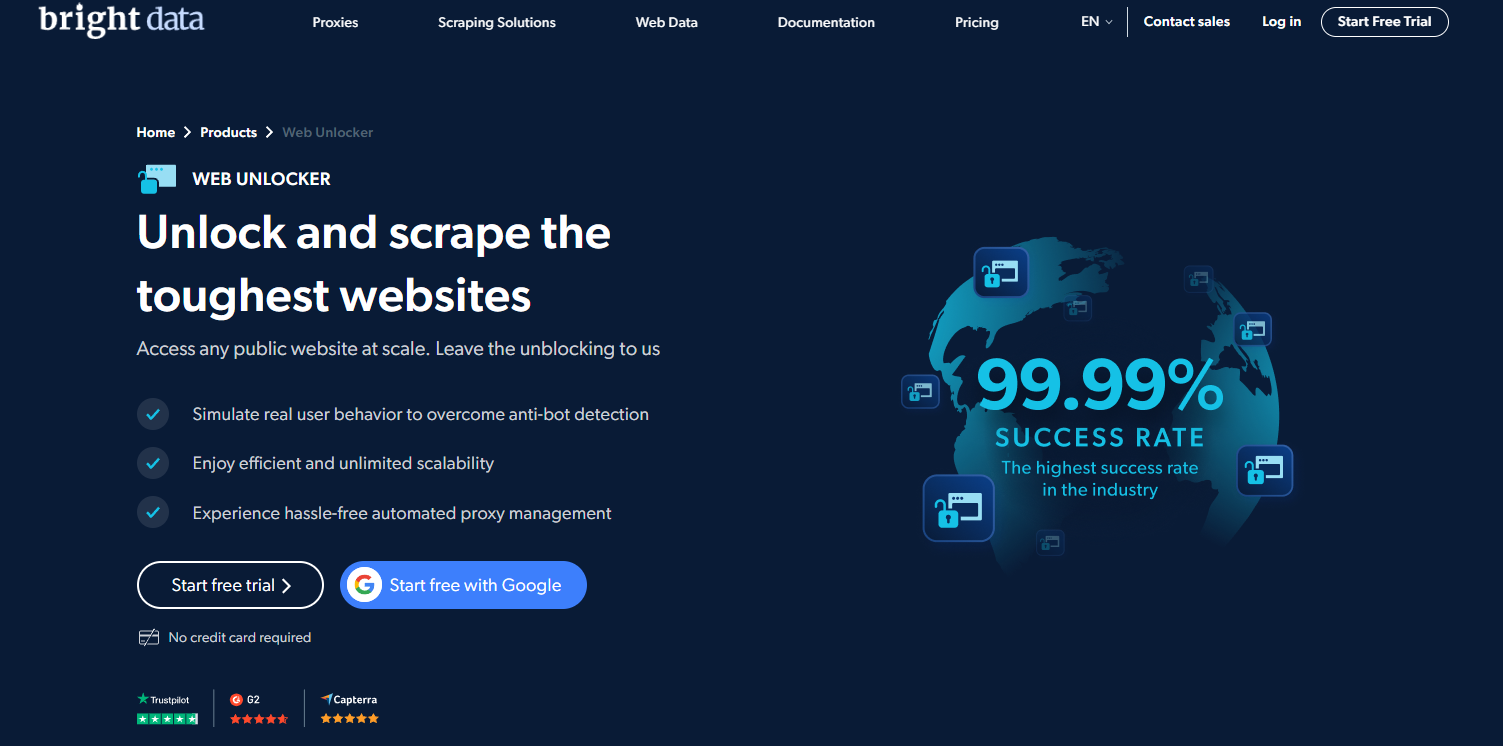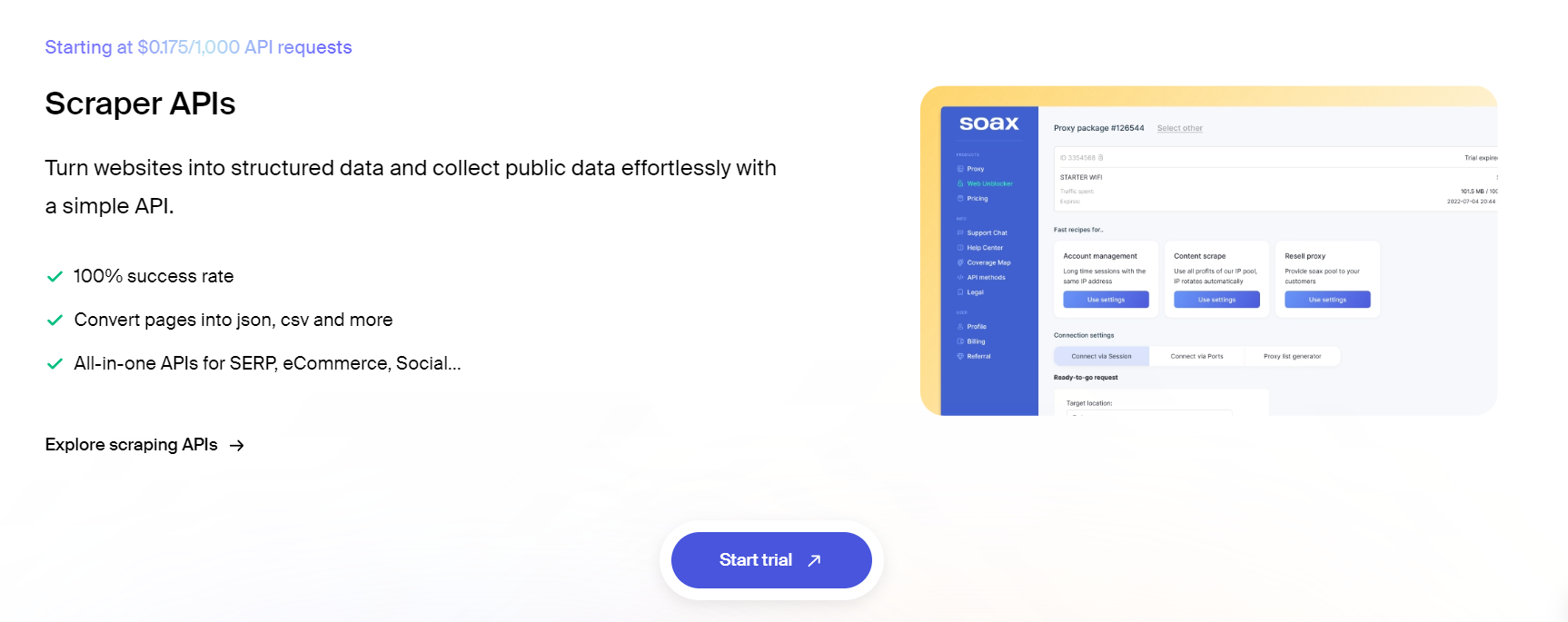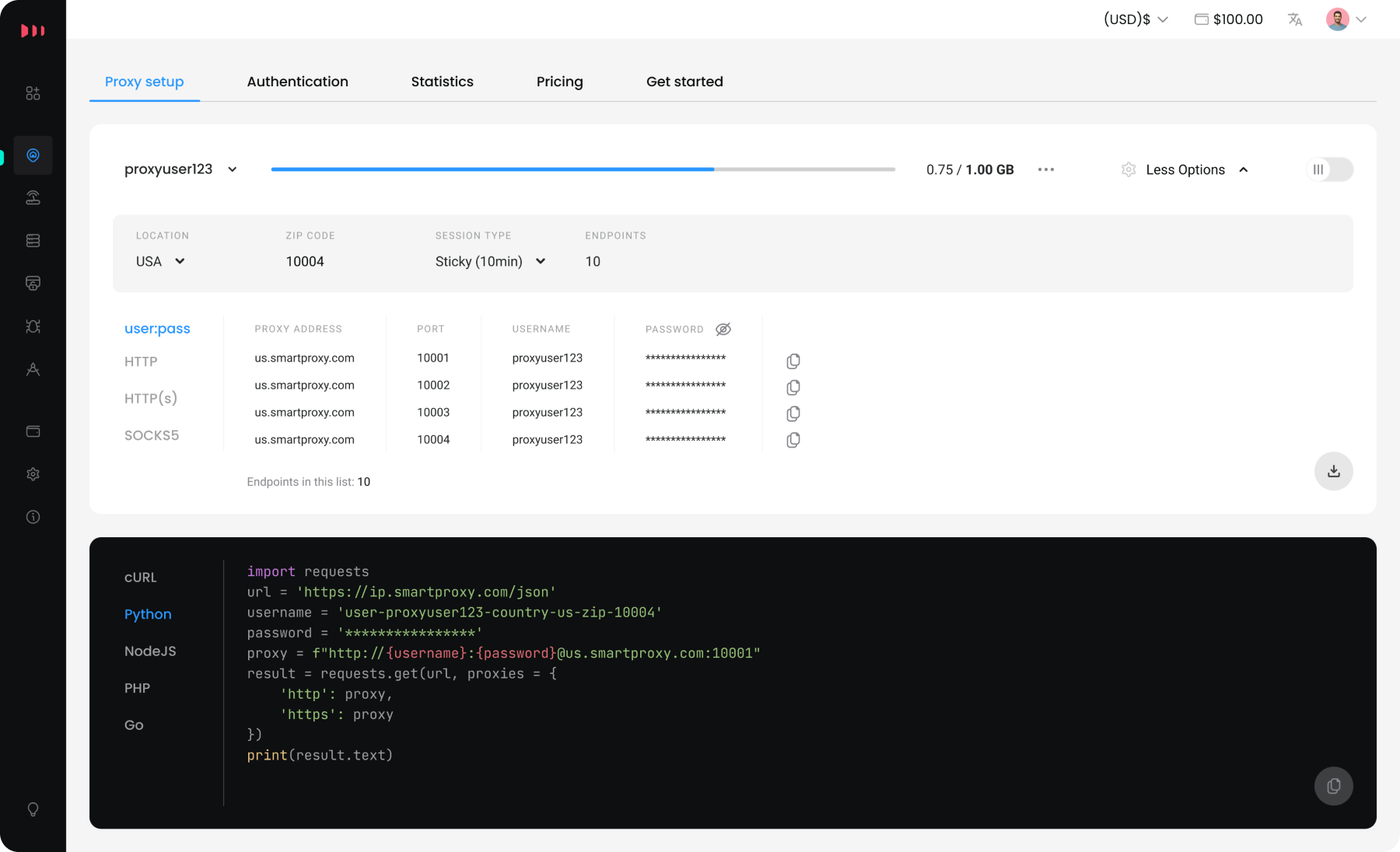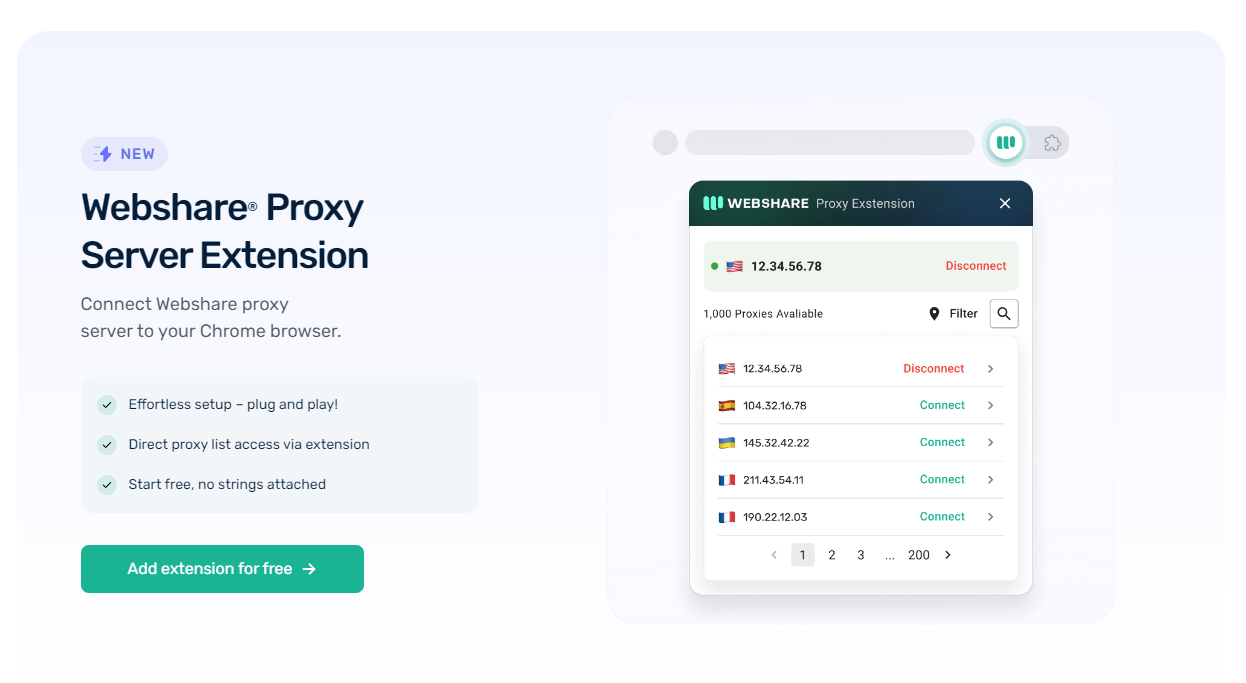Ecommerce has become an integral part of our lives. As online shopping continues to grow, so does the need for secure, efficient, and anonymous transactions. Enter ecommerce proxies – powerful tools that are revolutionizing the way we shop and conduct business online.
What is an Ecommerce Proxy?
An ecommerce proxy is a specialized server that acts as an intermediary between your device and the internet, specifically designed to enhance online shopping and business operations. It masks your IP address, providing anonymity and security while allowing you to access geo-restricted content and perform various ecommerce-related tasks.
Benefits of Using Ecommerce Proxies
- Enhanced Security and Privacy: Ecommerce proxies offer a significant layer of protection by hiding your real IP address, making it difficult for malicious actors to track your online activities. This is particularly crucial when dealing with sensitive financial transactions, where the security of your personal and payment information is paramount. By encrypting your internet traffic, ecommerce proxies prevent data breaches and unauthorized access, ensuring that your online activities remain private and secure.
- Access to Geo-Restricted Content: Many online stores and marketplaces restrict access based on geographical location, limiting the availability of certain products and deals to specific regions. Ecommerce proxies allow you to bypass these geo-restrictions by masking your IP address and making it appear as though you are browsing from a different location. This opens up a world of shopping opportunities, enabling you to access a broader range of products and services that might otherwise be unavailable in your region.
- Competitive Price Monitoring: For businesses, ecommerce proxies enable efficient competitor price monitoring. By using different IP addresses, you can gather pricing data from competitor websites without being detected or blocked. This allows you to keep track of market trends, adjust your pricing strategies accordingly, and stay competitive in the ever-changing ecommerce landscape. Proxies ensure that your monitoring activities remain anonymous, preventing competitors from recognizing your IP and potentially blocking your access.
- Improved Data Scraping: Ecommerce proxies facilitate web scraping, allowing businesses to collect valuable market data, customer reviews, and product information from various sources without triggering anti-bot measures. By distributing requests across multiple IP addresses, proxies help you gather comprehensive datasets efficiently and without interruption. This data can be used for market research, inventory management, and strategic decision-making, providing a competitive edge in the marketplace.
Types of Ecommerce Proxies
- Residential Proxies: Residential proxies use IP addresses assigned to real residential devices, making them appear as genuine users to websites. This high level of anonymity and reliability makes residential proxies ideal for tasks that require accessing sensitive information or bypassing strict anti-bot measures. They are particularly useful for activities such as price comparison, accessing geo-restricted content, and conducting secure financial transactions.
- Datacenter Proxies: Datacenter proxies are faster and more cost-effective than residential proxies, as they originate from data centers rather than residential ISPs. They are suitable for high-volume tasks like data scraping and bulk account management. However, because they do not originate from residential addresses, they may be more easily detected by some websites. Despite this, their speed and cost-efficiency make them a popular choice for businesses needing to process large amounts of data quickly.
- Mobile Proxies: Mobile proxies use IP addresses from mobile devices provided by mobile carriers. These proxies are excellent for accessing mobile-specific content or bypassing certain geo-restrictions that are harder to overcome with other types of proxies. The frequent rotation of mobile IPs also provides an additional layer of anonymity, making mobile proxies a robust choice for tasks requiring high levels of security and flexibility.
Use Cases for Ecommerce Proxies
- Localized Pricing and Deals: Ecommerce proxies allow businesses to check localized pricing and deals across different regions. By using proxies to appear as local users, businesses can understand regional pricing strategies and offer competitive prices to their customers.
- Ad Verification: Businesses use ecommerce proxies to verify how their ads are displayed in different locations. This ensures that marketing campaigns are correctly targeted and displayed, helping to maximize ROI and avoid ad fraud.
- Sneaker Copping: Sneaker enthusiasts and resellers often use ecommerce proxies to purchase limited-edition sneakers from multiple accounts simultaneously. Proxies help them avoid detection and increase their chances of securing high-demand items.
- Ticket Scalping: Similar to sneaker copping, proxies are used to purchase event tickets in bulk. By using multiple IP addresses, scalpers can bypass purchase limits set by ticketing websites and secure a large number of tickets for resale.
Best proxy providers for ecommerce businesses
Oxylabs

Oxylabs is a top-tier proxy provider offering a wide range of products beyond residential proxies, such as data center, mobile, rotating ISP, and SOCKS5 proxies. You can also use their versatile search engine or e-commerce scraper APIs.They boast an impressive proxy pool of 100 million IPs, making them ideal for large business needs like ad verification, brand protection, and SEO monitoring.However, Oxylabs' premium pricing might not be suitable for beginners or those looking for personal use. Their residential proxy prices start at $15 for 1GB, with a 7-day free trial for businesses and a 3-day refund for individuals.
Bright Data

Bright Data is a major proxy provider offering residential, dedicated datacenter, and ISP proxies, with features like targeting specific ASN and ZIP codes. They have an open-source proxy manager, custom API, and a large pool of 72 million proxies. However, their web dashboard can be difficult for newcomers, and their pricing is high, with residential proxies costing $15 per GB. They offer a 7-day free trial for businesses and a 3-day refund for individuals.
Soax

Compared to some competitors, SOAX's collection of over 8.5 million residential IPs might not seem large, but it's notable for being entirely residential.However, SOAX lacks an application or browser plugin for privacy protection and does not offer a combined pool of WiFi and Mobile IPs, which could be more affordable for users.SOAX residential proxies start at $99 for 8GB, with a 3-day trial available for $1.99.
Smartporxy

Smartproxy offers a perfect blend of affordability and features, with a proxy pool of over 55 million across 195+ countries. It stands out with excellent 24/7 customer support, detailed documentation, and an easy quick start guide, making it ideal for beginners. They provide various proxy solutions, including residential, static (ISP), and mobile proxies. While carrier or ASN targeting residential proxies isn't available, they offer proxies starting at $4 per GB, with a 14-day money-back guarantee or a 3-day free trial for new users.
Webshare

Webshare is known for its focus on anonymity in the market. They stay ahead of challenges by using constantly updated software.This approach includes protection against complex detection methods like HTTP header inspection, TCP fingerprint proxy, port scan prevention, and DNS leak detection.Their proxy pool is extensive, offering 30 million monthly IPs and the option to choose from 195 locations. They support both HTTP(S) and SOCKS5 protocols. Webshare pricing begins at $7 for 1 GB. There is no free trial for residential proxies.
Future Trends in Ecommerce Proxies
- AI and Machine Learning Integration: The future of ecommerce proxies will likely see the integration of AI and machine learning to enhance security and efficiency. These technologies can help detect and prevent malicious activities, optimize proxy usage, and provide predictive analytics for better decision-making.
- Enhanced Geolocation Features: As ecommerce becomes more global, proxies with advanced geolocation capabilities will be in high demand. This will allow businesses to precisely target and access regional content, improving their market reach and customer engagement.
- Sustainability and Eco-Friendly Proxies: With growing awareness of environmental issues, there may be a rise in eco-friendly proxy services that focus on reducing energy consumption and carbon footprint. Sustainable proxies will appeal to environmentally conscious businesses and consumers.
FAQs
1. What types of ecommerce proxies are available?
The main types of ecommerce proxies are residential proxies, datacenter proxies, and mobile proxies, each with their own strengths and use cases.
2. How do I choose the right ecommerce proxy provider?
When choosing an ecommerce proxy provider, consider factors such as proxy pool size and diversity, speed and reliability, authentication methods, pricing structure, customer support, and compatibility with your specific ecommerce needs.
3. How do ecommerce proxies improve online shopping security?
Ecommerce proxies encrypt your internet traffic, protecting your personal and financial information from hackers and third parties, ensuring that your online activities remain private.
4. Can ecommerce proxies help in price comparison?
Yes, ecommerce proxies allow users to compare prices across different regions by masking their IP address, helping them access local pricing and find the best deals.
5. What are the ethical considerations when using ecommerce proxies?
It is essential to comply with the terms of service of the websites you access, ensure data privacy, and use proxies responsibly to maintain fair competition and the integrity of the ecommerce ecosystem.
6. How can businesses use ecommerce proxies for market research?
Businesses can use ecommerce proxies to conduct market research by accessing regional data, monitoring competitor activities, and gathering insights into global market trends and consumer behavior.
7. Are there any risks associated with using ecommerce proxies?
While ecommerce proxies offer enhanced security and privacy, it's crucial to use them responsibly and in compliance with legal and ethical guidelines to avoid potential risks and legal issues.
8. How do ecommerce proxies compare to VPNs for online shopping?
While both provide anonymity, ecommerce proxies are typically faster, offer more IP options, and are better suited for tasks like web scraping and managing multiple accounts compared to VPNs.

